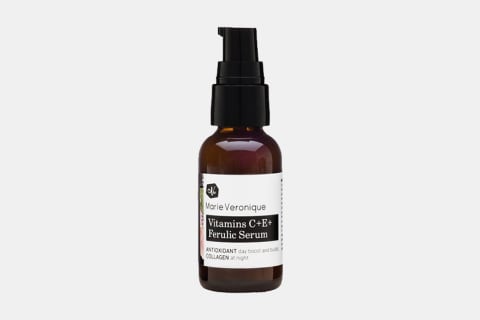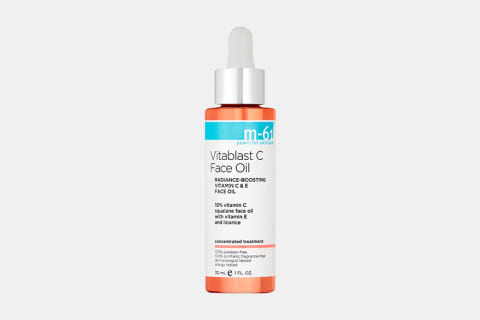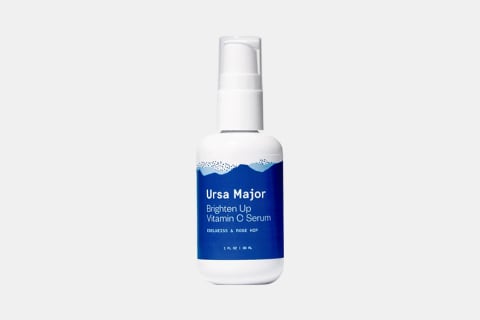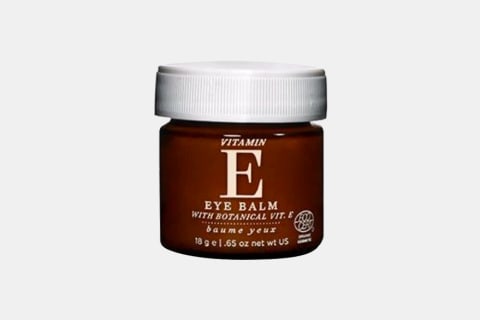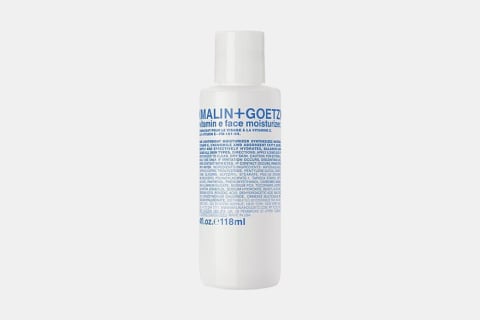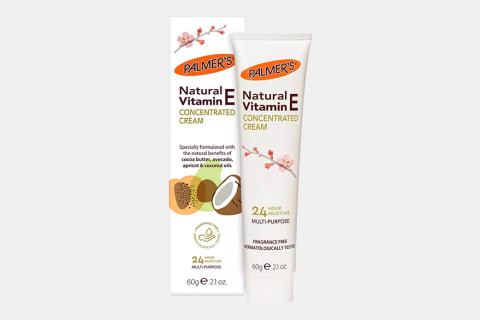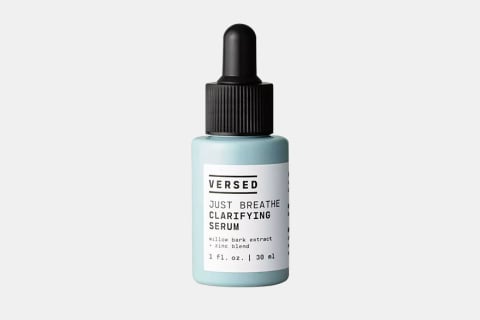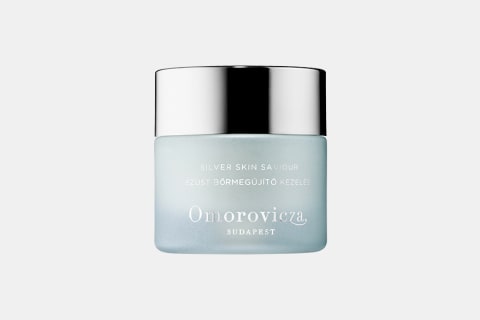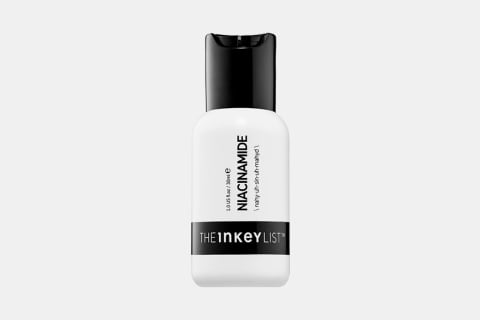What Is An Antioxidant? The Benefits Of Using Antioxidants In Skin Care

Antioxidants are an MVP in skin care. But do you really understand why? It's one of a class of ingredients we just know we should be slathering on but don't really understand what they're doing once they touch our delicate skin. But once you understand why they're so important for skin health, you'll never want to skip an antioxidant serum or cream again.
Advertisement
What is an antioxidant?
An antioxidant is a molecule that neutralizes free radicals in the body. "Free radicals are harmful unstable molecules that can damage your cells or DNA," says board-certified dermatologist Zenovia Gabriel, M.D., FAAD. Free radicals are called "unstable" because they are missing an electron. This is a problem because atoms don't like to have uneven electrons, and when they are unbalanced they wreak havoc. One way they wreak havoc is they take electrons from healthy cells. Those healthy cells are then turned into, you guessed it, free radicals. The cycle continues.
The cycle, of course, has to start somewhere: Our body naturally creates free radicals as a byproduct of cell metabolism1 but also by coming into contact with external aggressors like UV exposure, blue light, smoking, pollution, inflammation, and so on. When this happens, your body is put through what's called oxidative stress. Here's a thorough explainer on oxidative stress—read up, it's worth understanding—but an abbreviated definition is it's an imbalance of free radicals and antioxidants in the body.
Cool scary-sounding science jargon, right? But what does that actually mean? A whole lot, it turns out: "Free radicals lead to changes in the cell that are recognized as signs of aging: decreased collagen and elastin, increased pore size, increased textural changes and changes in pigmentation," says Morgan Rabach, M.D., board-certified dermatologist and co-founder of LM Medical NYC.
So when you apply antioxidants (or ingest, but that's an entirely different topic, which you can learn about here), they stabilize free radicals by donating an electron. Or they might make free radicals harmless by breaking them down. And what's even more impressive is that antioxidants don't turn into free radicals themselves after giving away an electron.
What are the benefits?
"People often ask how many antioxidants you should be using regularly; the answer is: the more the better," says board-certified dermatologist Rachel Nazarian, M.D., of Schweiger Dermatology Group. "The more you can help neutralize unstable molecules caused by free radical formation, the longer you can salvage the health of your cells and skin. There's really no limit to how much you can protect and repair your body!"
- Support collagen and elastin. When your body is put under oxidative stress, your production of collagen and elastin slows down—not to mention these precious structural skin cells actually start to break down.
- Help minimize pore size. You cannot shrink pores; however, your pores do enlarge as you age. This happens because the collagen in your skin breaks down and the pore lining starts to sag. Then you end up with skin that appears like orange peel skin.
- Brighten tone. This happens via two pathways. The first is that it mitigates UV damage, the primary cause of discoloration. The second is that some antioxidants can actually work as pigment inhibitors2, meaning they stop dark spots from forming altogether.
- Decrease inflammation. Inflammation is the result of free radicals and oxidative stress. Inflammation is a systemic issue, of course, but on the skin it can show up as a variety of symptoms, including acne, redness, sensitivity, rashes, or so on. Since antioxidants neutralize free radicals, it tempers inflammation.
- Delay photo-aging. Since UV damage and things like blue light trigger free radicals, you can halt this process and minimize damage by using antioxidants.
Advertisement
What are some of the best ones to apply topically?
There are a lot of antioxidants out there—far too many to even attempt to cover here. If you want even more info on the best science-backed antioxidants, read our more thorough list here. But even that isn't exhaustive, as there are just so many various actives that act as antioxidants. So instead, we'll focus on the power players:
Vitamin C
You've heard of it, you love it, you might even use it. Vitamin C is probably the most famous and beloved antioxidant in skin care. "Vitamin C is absolutely vital to the formation of healthy tissue," says Nazarian. Aesthetically, derms and skin care experts love it not only because it's a skin brightener3 but because it supports collagen production and stabilizes the collagen4 you already have in your body.
Vitamin E
This vitamin is the most prevalent fat-soluble vitamin in the skin5—making it essential for maintaining skin health. Vitamin E works in a few key ways. First it does all the things we expect out of an antioxidant, but it is also highly moisturizing and conditioning6 when applied topically. It also aids other antioxidants to do their best. For example, vitamin C regenerates vitamin E after the latter scavenges free radicals, while vitamin E is able to stabilize the notoriously high-maintenance vitamin C, notes Nazarian.
Vitamin B3
This is the soothing antioxidant, ideal for inflamed skin. Vitamin B3 (niacinimide) does so by strengthening the skin barrier, something that's essential if your skin is easily irritated or sensitive. On that note, it's also found to be great for people with acne. In fact, one study found that topical treatments of niacinamide treated moderate acne just as well as a popular topical antibiotic.
Bottom line.
There is no reason not to add an antioxidant to your skin care routine and plenty of reasons to do so. Plus, it's so easy to add the free-radical fighters to your routine; just pick up a serum, oil, or cream with one of these ingredients and slather it day and night. Your skin will thank you.
Advertisement

Alexandra Engler is the beauty director at mindbodygreen and host of the beauty podcast Clean Beauty School. Previously, she's held beauty roles at Harper's Bazaar, Marie Claire, SELF, and Cosmopolitan; her byline has appeared in Esquire, Sports Illustrated, and Allure.com. In her current role, she covers all the latest trends in the clean and natural beauty space, as well as lifestyle topics, such as travel. She received her journalism degree from Marquette University, graduating first in the department. She lives in Brooklyn, New York.
6 Sources
- https://www.ncbi.nlm.nih.gov/pmc/articles/PMC3249911/
- https://www.nature.com/articles/srep07995
- https://www.ncbi.nlm.nih.gov/pmc/articles/PMC3673383/
- https://lpi.oregonstate.edu/mic/health-disease/skin-health/vitamin-C
- https://lpi.oregonstate.edu/mic/health-disease/skin-health/vitamin-E
- https://www.ncbi.nlm.nih.gov/pmc/articles/PMC4976416/
